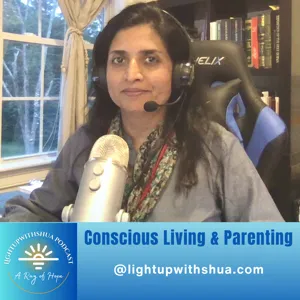Podcast Summary
A Year-long Arctic Expedition to Study Changing Climate: Scientists study Arctic's thinning ice to understand its impact on energy transfer, ice movement, and overall climate.
A team of scientists, led by the MOSAIC (Multidisciplinary Drifting Observatory for the Study of Arctic Climate) initiative, embarked on a year-long expedition to the Arctic to study the causes and consequences of the diminishing Arctic ice. As the Arctic has warmed over the decades, the sea ice has become thinner and covers less area, leading to new behaviors and challenges. The team aims to understand how these changes impact energy transfer and ice movement, among other things. To conduct their research, they had to find an ice floe to anchor their boat next to and spend a year observing. This expedition highlights the importance of studying the Arctic's changing climate and the potential implications for our planet.
Understanding Arctic's role in climate system: The Arctic's impact on climate system is crucial, affecting cloud formation, carbon absorption, and organism survival. MOSAIC mission aims to contribute to this understanding despite the challenges.
The Arctic sea ice plays a crucial role in the global climate system, affecting cloud formation, carbon dioxide absorption, and the survival of organisms. However, studying the Arctic's impact on the climate is a complex task due to the unpredictability of the environment. Dr. Marcus Rex, the leader of the MOSAIC mission, acknowledges the challenges and expresses his apprehension about the expedition. The importance of understanding the Arctic's role in the climate system cannot be overstated, as it could help scientists create more accurate climate models. The MOSAIC mission, with its ambitious goals, aims to contribute to this understanding.
Finding a stable research platform in thin Arctic ice: Despite challenges like melting or drifting, scientists use satellite data to find a suitable ice floe for a year-long Arctic research expedition
The Alfred Wegener Institute's expedition to study the thinner ice in the Arctic faces a significant challenge in finding a thick enough piece of ice in a thin area to establish a stable research platform. Once they find a suitable ice floe, they still face potential issues such as it melting or breaking up before the year is up, or drifting into restricted areas like the Beaufort Gyre. Despite these challenges, the team has used satellite data from over a decade to help them find a suitable ice floe that they believe will last a year. The expedition set sail from Norway with a Russian support vessel, the Akademik Fedorov.
Discovering the Arctic Circle's Sea Ice: The students' encounter with the Arctic Circle's sea ice brought mixed emotions, emphasizing the significance and preciousness of experiencing natural wonders, despite uncertainty and change.
The anticipation and excitement of the group as they sailed towards the Arctic Circle in search of sea ice. The moment they finally encountered it was met with a mix of emotions, from disappointment and confusion to awe and privilege. The students on board, Mauro Herman and Robbie Mallett, shared their perspectives on the significance of the ice, with Mauro explaining the difference between ice and white ocean waves, and Robbie emphasizing the preciousness and impending change of this natural resource. The group's experience highlights the importance and beauty of witnessing the natural world, even in the face of uncertainty and potential disappointment.
Encountering Thin and Unstable Arctic Ice: The Arctic ice is thinning and becoming less stable, making it challenging for researchers to find suitable patches for their studies. This impacts both scientific research and the broader Arctic ecosystem.
The Arctic ice is becoming thinner and less stable, making it more challenging for researchers to find suitable patches for their studies. During an expedition, the team encountered an impressive yet concerning ice floe, which was thick enough to support vehicles but had a weak, degraded layer beneath the surface. This discovery highlighted the impact of Arctic warming on the ice, which was once much thicker and more stable. The team spent several days assessing ice thickness through various methods, but the results were not promising as most of the ice flows were thin and unstable. Despite these challenges, they eventually found a suitable patch of ice for their research. This experience underscores the importance of understanding the changing Arctic climate and the implications it has for both scientific research and the broader ecosystem.
Mosaic Expedition Faces Challenges in Arctic Research: The Mosaic expedition, studying Arctic ice, faces challenges due to ice breaks caused by storms, emphasizing the importance of adapting to the rapidly changing Arctic and gathering valuable data for climate change research.
The Mosaic expedition, which aims to study the Arctic, faced a major challenge just weeks after discovering a suitable ice flow for their research. The team encountered significant ice breaks due to storms, highlighting the importance and challenges of studying this rapidly changing region. Despite these challenges, the expedition continues, as the Arctic's rapid transformation holds true significance for understanding climate change. The scientists involved are working to gather valuable data that could help us adapt to the impacts of climate change. This expedition underscores the importance of persistence and innovation in scientific research, even in the face of adversity. Stay tuned for the next episode of Ravenna's reporting, where we'll dive deeper into the specific goals of the Mosaic expedition and its potential implications for climate change research.





